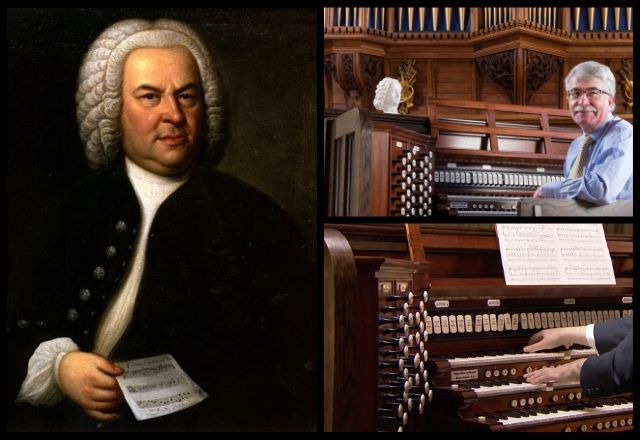As I am a child of the 1960’s (born 1955), you might reasonably expect that I spent my teenage years listening to the music of the major bands of those days. Perhaps ‘The Beatles’ would be considered the highest profile, but it was also the time of Elvis Presley, the Rolling Stones, the Who. In fact, a time of abundant choice presented regularly on BBC TV through their chart covering production ‘Top of the Pops’.
Despite all this choice, and much of it now regarded as ‘Classic of its Time’, it was music with which I never engaged. From a very early age it was music from over 200 years earlier that I could relate to. My record collection, such as it was, included Beethoven and Mozart, but it was the music of Bach that resonated most with me.
In preparing this blog, I actually found a box of these early LPs in the attic. Numerous recordings of Messiah amongst mainly organ works and a single Harpsichord EP.
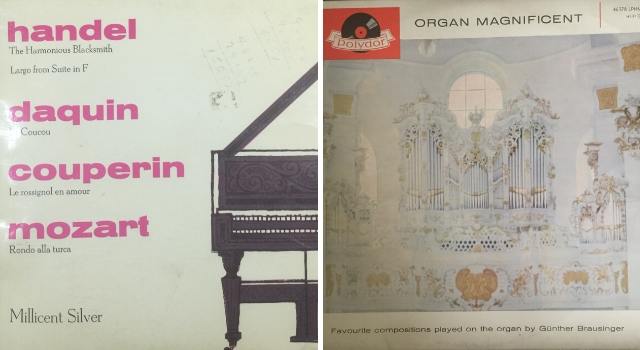
A large collection of organ music
If you have a few minutes to spare I will share with you some of the contents of this record collection as it perhaps says more than I can ever write about myself. Not surprisingly, you will find a large amount of organ music.
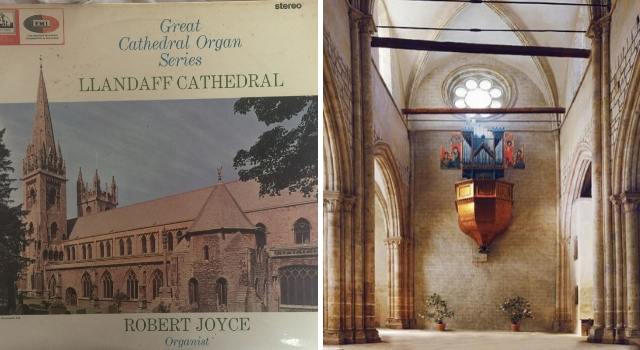
An early purchase was Robert Joyce at the instrument in Llandaff Cathedral, which I regularly heard when at the nearby Cathedral School. My collection includes an EP of the historic organ at Sion Fortress Cathedral in Switzerland, the home of the oldest playable pipe organ dating from the 1400’s which of course I visited on a holiday trip with my parents.
My favourite LP was of Michael Schneider playing at Schleswig Cathedral organ. This includes a recording of the Dorian Toccata and Fugue, the piece that most probably cemented my lifelong love of the organ.
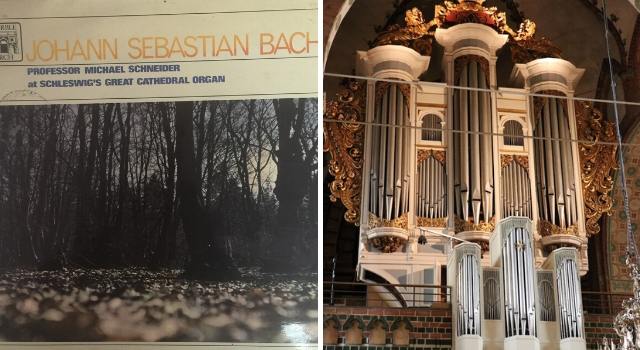
For variety, I have another LP ‘The Waggle of the Kilt’, a medley performed by the Pipes & Drums of the Argyll and Sutherland Highlanders. Another disc I had completely forgotten about was a recording of Tubular Bells by Mike Oldfield, the nearest I got to the pop music of the day.
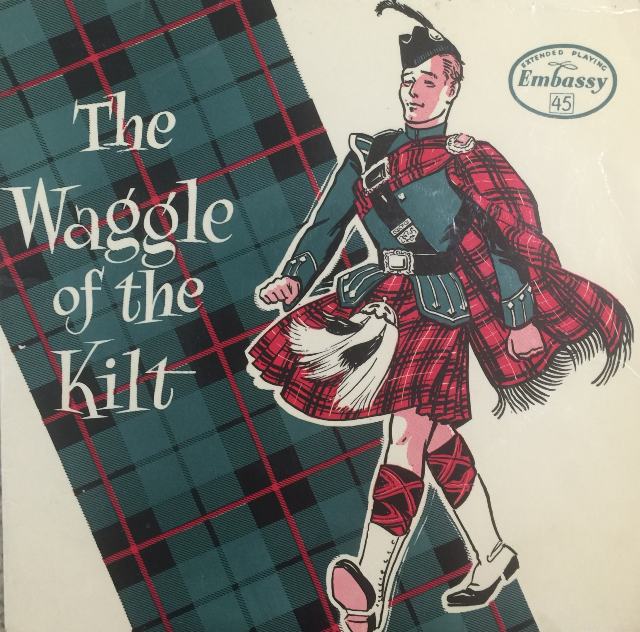
Let no one say my early musical tastes were narrow!
So why does Bach dominate my choice for music generally and the organ in particular?
Bach’s music displays order and symmetry in its structure
For some of us, there is immense beauty in order. If we sit at a table we will immediately notice if the knife is not parallel to the fork. Symmetry brings us an overriding sense of calm that a more random display can never achieve.
I confess that I fall into that trap. Even numbers are more satisfying than odd ones. I can only mow the lawn with ordered stripes even extending to diamond stripes as on the Wembley pitch if time allows.
The music of Bach displays all this order and symmetry in its structure. It is filled with an abundance of patterns that let the experienced listener know exactly where the music is leading.
There’s an effortless elegance to the way Bach expresses his thoughts, yet were we to try it ourselves, we would soon find just how hard it is to create this kind of music.
Take, for example, the trio sonatas, where only three notes sound at any one time From these tiny ingredients Bach weaves music of intense beauty yet rigid structure. It’s as if Bach, the magician, has managed to create perfect circles from a series of straight lines.
Bach represents a pinnacle of composition
In the much larger Toccatas and Fugues, we are treated to more complex harmonisation but still within the reassuringly predictable and well defined landscape that Bach’s works exploit.
This impression is helped by the numerous reworkings of earlier compositions that Bach created for other occasions. Indeed, Bach is the master of extracting every possible option from the themes he invented.
It’s as if he had an early sense of ‘copy and paste’, re-purposing older work to generate extra income. But since he did have a very large family to feed, we can maybe forgive him that laziness.
For many fans, the works of Bach represent a pinnacle of composition that has never been surpassed. It’s true that if you are a fan of a more romantic style of composition you may find Bach hard to love. But if you crave order, symmetry and the reassurance of pattern flowing from that order, there is no composer, then or now, to match Bach’s genius.
I recently also wrote this blog post about Bach and what he would have made of digital organs.
I have had a passion for church organs since the tender age of 12. I own and run Viscount Organs with a close attention to the detail that musicians appreciate; and a clear understanding of the benefits of digital technology and keeping to the traditional and emotional elements of organ playing.
